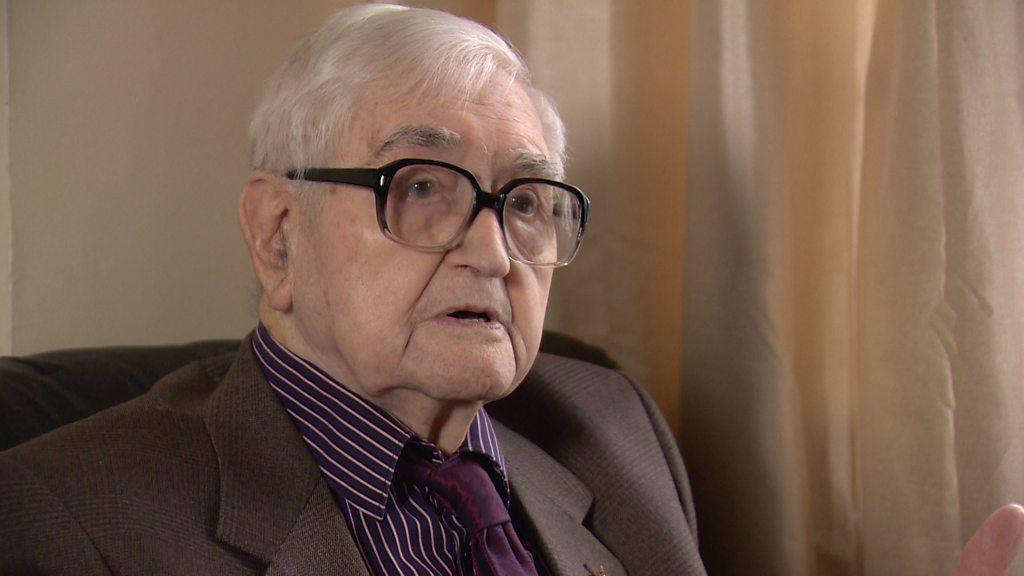D-day: 'It didn't feel important at the time'
- Published
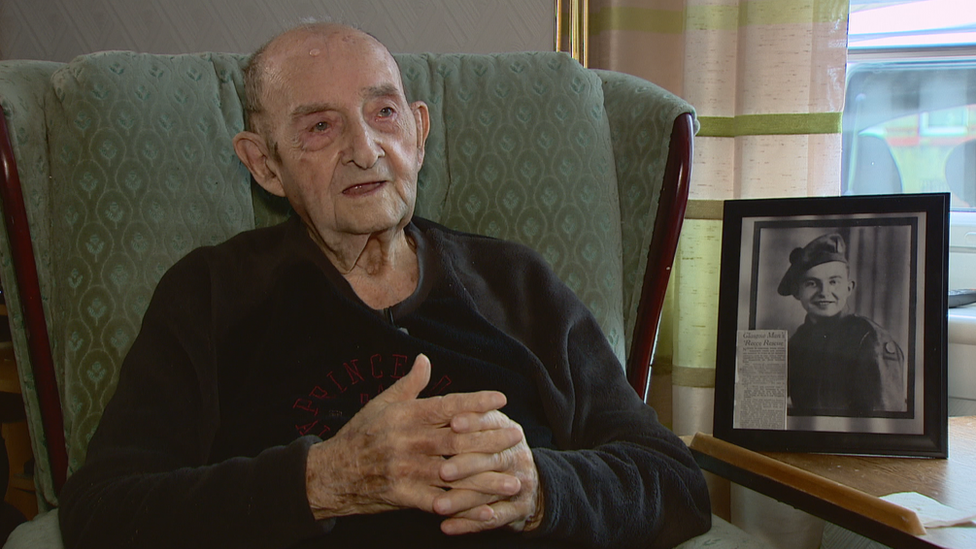
Joseph Connor was part of a Recce unit, at the tip of the advance
The men who took part in the Normandy landings are now hailed as heroes but 94-year-old Scottish veteran Joseph Connor said D-Day did not feel "important" at the time.
Mr Connor was wounded in one of the battles that took place after D-Day and when he returned home, the fact that he was just back from France counted for very little.
When he opened his first pay packet from the Govan shipyards, Mr Connor said he thought he had been underpaid.
No, he was told, you don't get the full men's salary until you are 21 years old.
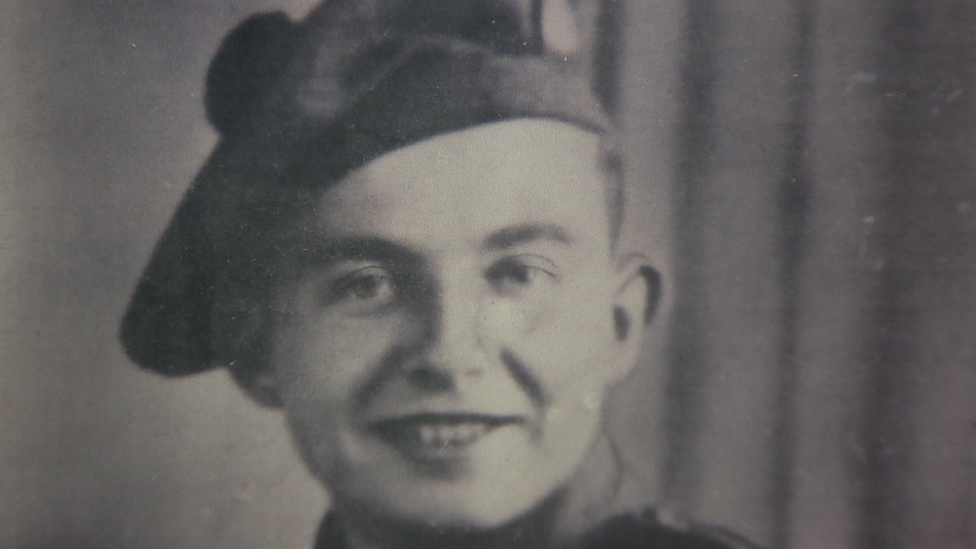
Mr Connor was too young to draw a man's wage when he returned from the war
Sitting in his small council flat in Renfrew, Mr Connor reflected back on his time right at the front of the push inland after D-Day.
He was in a recce unit, at the tip of the advance, keeping in constant contact with the enemy front.
"The fear was there," he said.
"There was a feeling that every day could have been our last day because all they needed to do was hit us with an 88 (artillery shell) that we would never even have seen or even a tank would have done us."
Mr Connor said the mindset of the troops was that they have little control over what happened to them.
"If it didn't happen to me, it would happen to someone else," he said.
"You were sorry about that but you are also saying 'I'm ok, I'm still ok'."
Mr Connor said D-Day did not mean much to him because it was only part of his mission.
"It was only later on when they were celebrating it that I said 'I was there, I could have been killed'.
"It was important what we did but we didn't realise the importance at the time. We just did what we were told to do."
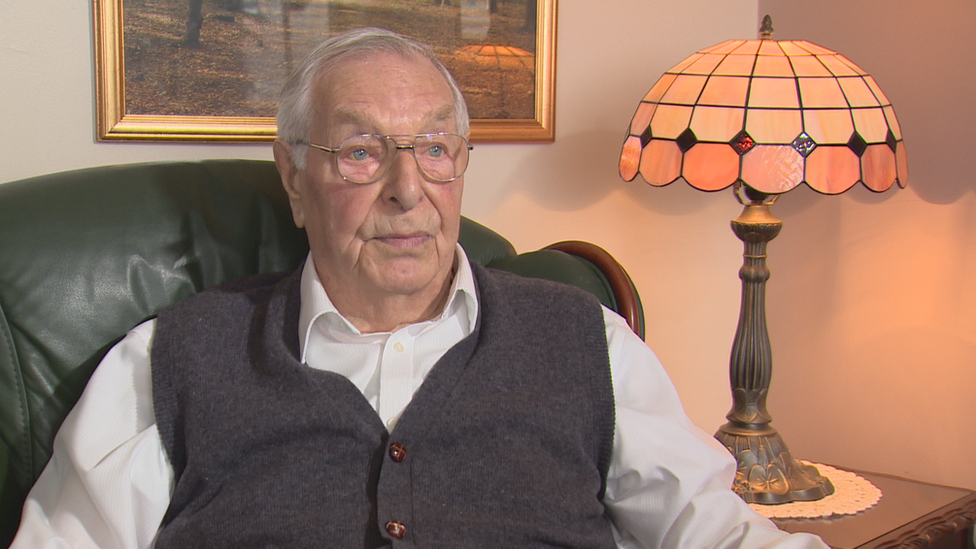
Dennis Gregson said he was upset by returning to the beaches of France
When Dennis Gregson led me through to his sitting room in Airdrie, he handed me a neat bundle of documents he had just printed off.
It was all the basic facts of the D-Day landings. He did not presume that people would know about it let alone what he did that day.
"It was chaotic," said the former Royal Marine who sailed a landing craft back and forth during the landings.
"We would get close to someone and shout "Where's Gold Beach?" until someone pointed us to the beach."
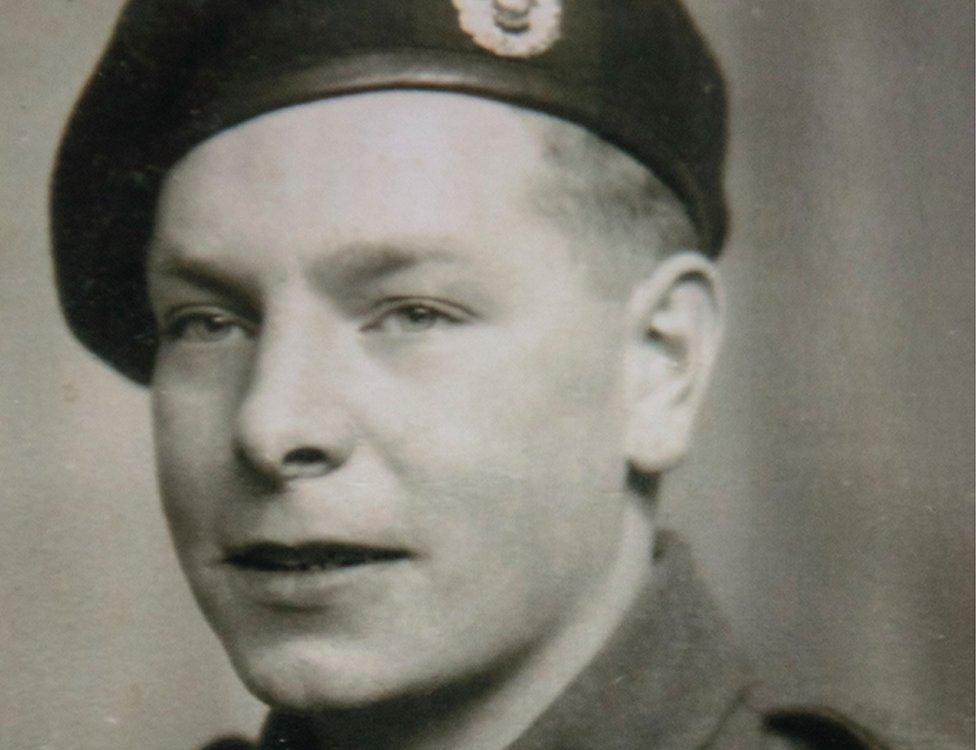
Mr Gregson never spoke of his experiences during the war until years later
Like most veterans of his era, Mr Gregson never spoke much of his part in the invasion which laid the foundations for the Allied victory in World War Two.
However, he was deeply affected when he started going back to France to visit the beaches.
Mr Gregson said: "I walked about 100 yards down the coast and that's when it struck me and I started crying alone.
"There was no-one out there, the water was calm but it all came back and that's when I kind of get upset."
Veteran Bill Glen recalls his fight in Normandy after D-Day
Bill Glen and his two brothers were on the frontline after D-Day. All of them came home and lived long lives in and around Glasgow. Now only Bill is left.
He told me: "It's only since I became older that I want to talk about it. When we were young we never spoke about it, even with my two brothers."
When Bill speaks of the friends he lost in one attack his eyes fill up, his voice catches.
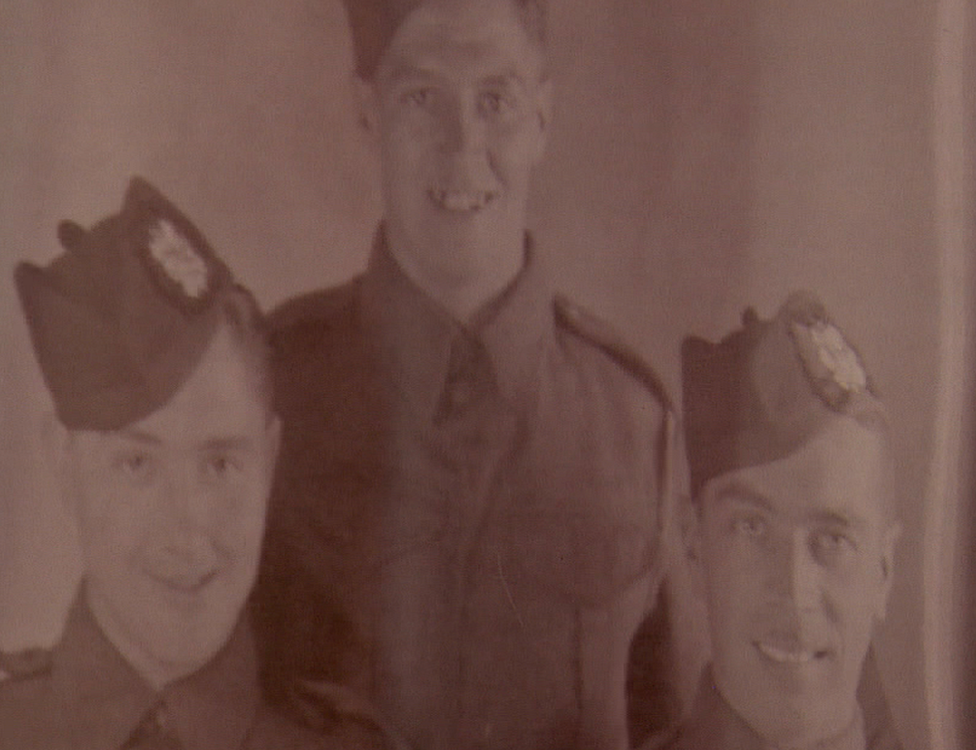
Bill Glen (left) rarely spoke with his brothers about the war
"I'll never forget that day," he said.
"They were all poor souls ... poor souls."
At 97, Mr Glen knows it is unlikely he will get back to France to visit the graves again.
He knows that every year there are fewer veterans around to tell their story.
"In a few years time if you want to know about it, you'll need to read it," he said.
- Published6 June 2019
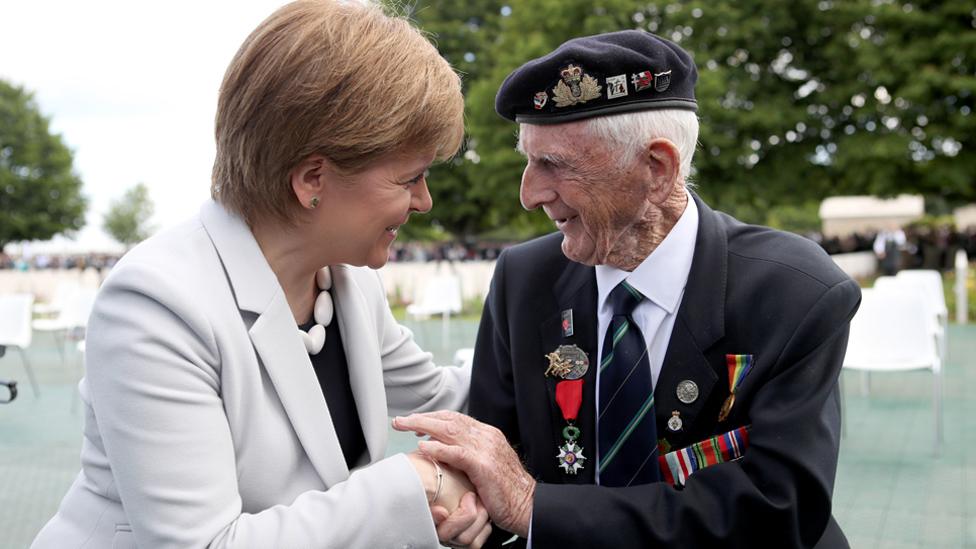
- Published6 June 2019
